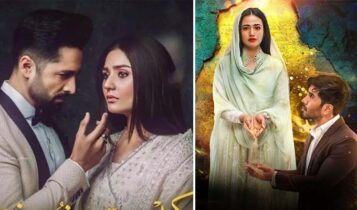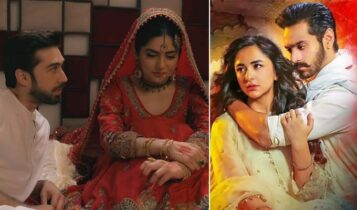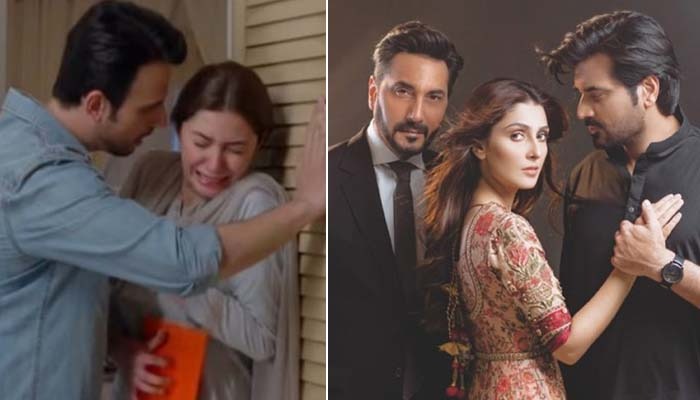Pakistani Dramas: Entertainment or Perpetuating GBV?
Bakhtawar Ahmed
Karachi: In Pakistan, the media landscape is largely dominated by content centered around political talk shows, heated debates, and news related to politics.
However, a significant percentage of the domestic audience tunes in to television for entertainment, with Pakistani TV dramas being the most prominent source of such content.
Whether it’s through prime-time broadcast TV channels, episodes uploaded on YouTube, or availability on OTT platforms, Pakistani TV dramas consistently make a profound impact on viewers.
Best known for their compelling narratives and cultural depths, these dramas offer viewers a window into the intricate tapestry of Pakistani society, leaving a lasting impression on audiences.
However, in recent years, a troubling trend has emerged—the portrayal of gender-based violence (GBV) in these dramas, which has sparked intense debates and discussions on social media to analyze the impact of these narratives.
The Rise of GBV
In recent decades, Pakistani dramas have evolved from simple, family-oriented stories to more complex narratives that reflect various social issues.
This change mirrors the shifts in Pakistani society. However, there has also been a noticeable increase in the portrayal of domestic abuse and gender-based violence in these dramas.
It has been observed that various forms of violence, including physical, verbal, mental, and emotional abuse, have been prevalent in drama storytelling for some time.
However, there is growing concern over the increasingly graphic and sensationalized depiction of these themes.
The alarming trend of glorifying violence and abuse in dramas has raised concerns among viewers and experts.
They have expressed distress about the potential impact of these narratives on societal attitudes towards violence.
The Audience
Ramaza Fatima, a 24-year-old medical student and avid drama enthusiast, shared her observations of the over-dramatization of violence in Pakistani dramas and said, “it has been normalized in society if a man hits a woman.
People find it adventurous. We’re not denying the existence of domestic abuse but the depiction is far more sensationalized as they are presented,” she added.
“Constant glorification of abuse ends up normalizing it,” she stressed.  She recalled the drama serial ‘Tere Bin’ that took the internet by storm in 2022 for its plot twist – hinting at marital rape and stressed the need for more diverse storytelling, exploring themes beyond violence and abuse.
She recalled the drama serial ‘Tere Bin’ that took the internet by storm in 2022 for its plot twist – hinting at marital rape and stressed the need for more diverse storytelling, exploring themes beyond violence and abuse.
“We have a wealth of stories to tell other than domestic abuse, typical ‘saas-bahu’ plots and women fighting over men, and it’s time to explore them,” she added.
Another drama viewer, Mussarat Akram, a senior journalist and social activist, expressed deep concern over the impact of dramas on the audience.
She notes that while viewers may be drawn to the drama’s negativity, it’s crucial to focus on the positive aspects and avoid glorifying abuse and violence.
“Dramas have the power to shape societal attitudes, and we must use this power wisely,” she asserted.
The Retrospect Reflection
Recent surveys in Pakistan have uncovered distressing statistics regarding violence against women and other genders.
The Aurat Foundation survey revealed that a staggering 70 percent of women in Pakistan have experienced some form of domestic violence.
Similarly, the Human Rights Commission of Pakistan reported over 2,297 cases of violence against women in 2020 alone, highlighting the urgent need for change.
Amid this, the portrayal of gender-based violence in TV dramas can leave a strong impact on society.
While it can be a powerful medium to raise awareness about the issue and encourage dialogue about the root causes of violence, there is also a risk that sensationalized depictions of violence can normalize and even glorify abusive behavior, leading to desensitization towards violence in real life.
Providing a broader perspective on the subject, Farheen Qureshi, an entertainment journalist – associated with Geo TV, explained that while violence can add depth to storytelling, it must be handled with extreme care.
“If the story or content of a show demands the depiction of violence, then obviously there is no substitute for it,” she said, explaining that “the call for no depiction of violence in dramas would be against creative freedom.”
Farheen noted that writers and directors must understand the responsibility of portraying violence and also show the consequences.
“I see it as a false depiction of ‘women empowerment’ when, for example, a husband slaps his wife and she immediately slaps him back. Countering violence with more violence is not going to have a positive impact on society.”

“For stories about women’s empowerment, consequences should be shown as well. We need an educated mindset to demonstrate how important self-respect is for all genders, and we definitely need more educated opinions and dialogue on this matter,” she added.
In 2019, another hit Pakistani drama serial Meray Paas Tum Ho took the internet by storm for its storyline and controversial dialogue.
Renowned actor Humayun Saeed, who played the leading role of Danish, had expressed his concerns after a scene from the show went viral online
In the scene, Danish rushed into Shehwaar’s office (played by Adnan Siddiqi) and slapped him for threatening to take the legal route if Danish doesn’t let Rumi meet his mother, Mehwish, played by Ayeza Khan. The young child lives in a boarding school, following the divorce of his parents.
Saeed took to his social media account and shared, “It kind of feels strange to ‘like’ or respond to all the excitement of someone being hit though.”
“I have to admit credit goes to Adnan Siddiqui whose wonderful reaction to my action has made this sequence such a success,” he wrote.
Furthermore, Eleen Bukhari, a seasoned entertainment journalist, expressed deep concern over the recent surge in sensationalized violence in Pakistani dramas.
She shared that she has been watching Pakistani drama along with her family ever since she was a child.
While praising the diversity of content in Pakistani dramas, she pointed out that “unfortunately, in dramas, the depiction of abuse and violence is not for the “awareness” anymore but to generate more TRPs, ratings and views on the internet.”
She argued that such depictions not only exploit the issue for ratings but also perpetuate harmful stereotypes and power dynamics. “Dramas have a powerful influence on society, and they must use this influence responsibly,” she asserted.
Insights from Experts
Discussing the psychological impacts, Zehra Kamal Alam, a psychologist, noted that the troubling trend of presenting violence simplistically perpetuates harmful stereotypes.
Alam acknowledged that while some dramas have successfully raised awareness about violence, others have failed by glamorizing or simplifying the issue. “The male protagonist with aggressive, over-possessive behavior promotes violence, blackmailing, and mental torture is one common storyline these days,” she explained.
She emphasized on the importance of age and violence warnings or disclaimers in dramas and said, “children are exposed to violence from a very young age. Age, content level, and violence warnings are very important.”
According to her, disclaimers would alert the audience to different types of violence, helping them identify abuse. She also suggested including information about support services at the end of the show, so people can seek help if needed.
Read More: https://thepenpk.com/cultural-collision-or-invasion/
Sharing her expertise on the subject, Professor Sadia Mehmood, a researcher on women’s portrayal in TV dramas, highlighted the negative impact of romanticizing violence in drama serials.
Mehmood noted that the latest trend of violence and abuse in dramas has been followed from this history of Pakistani television content.
“The ‘slap-revenge’ trend has only given a raise to domestic abuse. We need to be more conscious when we present the violence and abuse stories on screen,” she added. She also noted that our dramas are following the rising trend of OTT content viewership.
The portrayal of violence in Pakistani dramas is not only about creative freedom but also about social responsibility. Responsible and realistic depictions of situations can educate and empower viewers, leading to a more informed and empathetic society.
However, there is a risk that sensationalized depictions of violence can normalize abusive behavior. It is crucial for producers, writers, and viewers to engage in a dialogue about the responsible portrayal of GBV so that these dramas continue to be a force for positive change in society.
All information and facts provided are the sole responsibility of the writer.
The writer is a freelance journalist and can be reached at bakhtawarahmed03@gmail.com

Comments are closed.